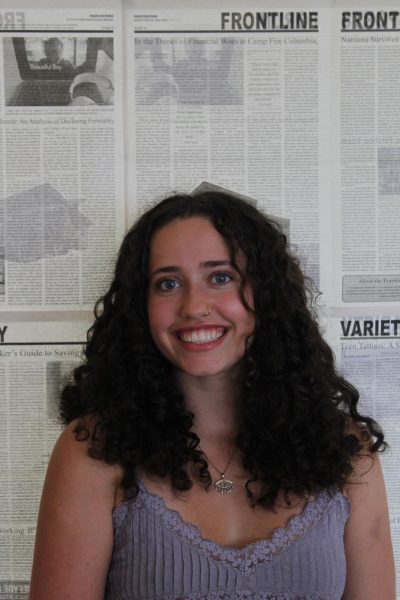Illustration by Eloise Beauvais.
On March 12, 2024, Oregon Governor Tina Kotek signed off on House Bill (HB) 4082, allocating $30 million to summer schools around the state. The bill, first introduced by Representative Susan McLain (District 29 in Hillsboro), will allow districts to request grants based on certain requirements set for summer learning programs. Following grant deadlines, the state will decide which districts are allocated this money while prioritizing Title I schools, which serve low-income students. Once decided, the money will be given to school districts who will then distribute this funding to their summer learning programs.
The second aspect of HB 4082 is a commitment towards establishing sustainable funding. This will set the state up to be able to fund future summers. “The second part of [HB 4082] is just as important … we’re actually looking at how [to] have actual plans for midterm and long-term investment in summer learning,” summarized McLain.
Initially, $50 million was requested by McLain and her team, alongside the Department of Education and the governor’s office. They initiated this request through a presentation covering the rationale for the desired number. In the presentation, they explained that this amount of funding could potentially be split across all 197 school districts in Oregon. McLain and her team also included the calculated number of how many students they believed could be helped with $10 million, then $20 million, all the way up to $50 million.
However, the members of the Joint Ways and Means Education Subcommittee, who determined how much funding would be granted, decided to administer $30 million to schools this upcoming summer. When asked to react to this limited funding, McLain stated: “Quite frankly, we were lucky to get $30 million this year because of all the other requests that were out there.” She continued to say, “I was thrilled. Of course we’ll get more, and we’ll keep working on long-term investment, but really, we were very fortunate to get this.”
Yet not everyone seemed content with this number. Darcy Soto, the director of learning acceleration for Portland Public Schools (PPS), says that while she is very grateful, the budget may not be substantial enough for each district to get the amount they need to effectively run their summer learning programs. “It’s wonderful that the legislature has passed this funding for this summer,” she began, but for PPS, “even at a scaled-down version of our program, [as in] going from 25 sites two years ago to 11 sites this year, it’s still about a $4 million program.” With the extra burden PPS has of being the largest school district in the state, Soto’s offices already predict the funding they will receive will be lacking.
“We essentially set up a school district in the summer,” Soto elaborated. This ‘school district’ needs funding to afford basic school operations, including hiring teachers, providing food, ensuring transportation, and more.
Comparatively, Oregon allocated zero additional funding to summer schools in 2023. This is an especially stark difference from the amount given during the COVID-19 pandemic. David Holm, the principal of Portland Evening and Summer Scholars, said, “We found out how valuable summer programming was over the course of the pandemic.” Funding for summer programs mirrored this statement, with Oregon allocating significantly more money during pandemic summers.
Initially, HB 4082 was proposed during a short session in Salem. Community members from various school districts testified in favor, and the bill passed 53-4 in the House on March 4, and 26-4 in the Senate on March 5. Before signing the bill, Governor Kotek released a statement showing her support for HB 4082, which emphasized the importance of summer learning programs. “As we advance conversations this year to examine how our schools are funded, I appreciate that this bill also creates a roadmap to explore sustainable funding for summer learning going forward,” she expressed. “I envision an Oregon where all students have access to these essential learning and enrichment opportunities.”
Danny Moran, the strategic communications advisor for Governor Kotek, reiterated this, stating: “A statewide Summer Learning program will foster success for all [of] Oregon’s students by improving readiness to learn, promoting academic achievement, and providing safe, healthy, and enriching ways to grow as individuals during the summer months.”
Summer school programs are an important aspect of learning for many students across the state. They allow those who need additional support in particular subjects to utilize the summer months to meet the typical four-year timeline and graduate along with their peers. Holm highlighted how valuable this opportunity can be. “I think having summer programming fills numerous gaps for students of all ages and not necessarily only in regards to academics.”
Soto agreed, adding that summer learning provides employment opportunities to both teachers and non-teaching staff in school buildings.
HB 4082 will continue to be put in place as more permanent and long-term funding processes are established. This continued funding is extremely important to McLain, a former educator herself, who worked in schools for 42 years. She credited this experience with inspiring her proposal for HB 4082, and stated that students “simply need that enrichment [and] the social and mental health aspects of summer learning.”



































